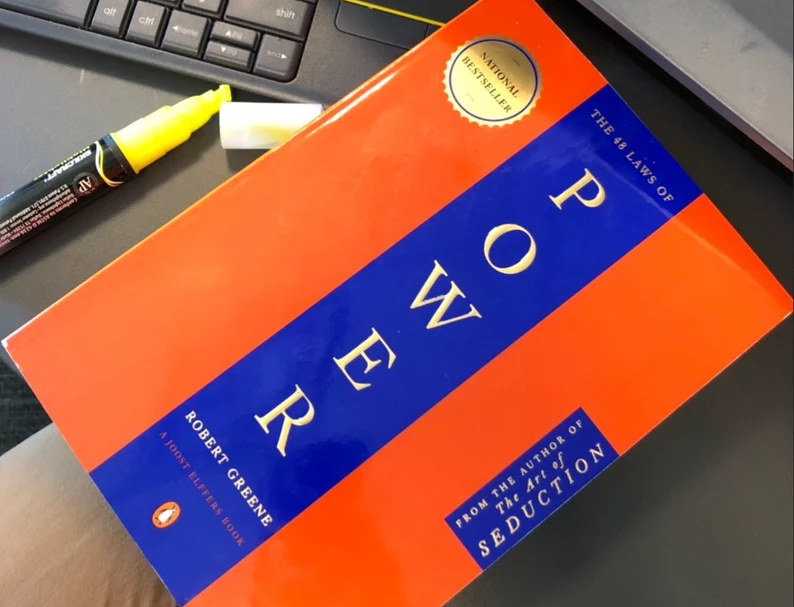“The 48 Laws of Power” by Robert Greene is a bestselling book that has received a lot of attention since its initial release in 1998. The book is a guide for those looking to gain power and achieve success in their personal and professional lives. It covers a wide range of topics, including how to build a strong network of allies, how to manipulate and influence others, and how to maintain power once it is achieved.
The New York Times called the book “a Machiavellian guide to power,” praising its ability to break down complex concepts into easy-to-understand principles. The Times also noted that while some of the tactics outlined in the book may be considered ruthless or even unethical, the book is ultimately a “cautionary tale” about the dangers of unchecked ambition.
Publishers Weekly also gave the book a positive review, calling it a “provocative and erudite guide” that “offers a wealth of insights and practical advice.” They also praised the book’s ability to be both “entertaining and informative.”
The Washington Post also reviewed the book, stating that “Greene’s book is a genuine instruction manual for those who want to gain power, whether that means climbing the corporate ladder, accumulating wealth, or simply getting what they want.” The Post also notes that the book is not just for those looking to gain power in the traditional sense, but also for those looking to gain power over their own lives.
Despite the positive reviews, the book has also faced some criticism. The Guardian called it “both chilling and morally bankrupt” and argued that the book’s tactics “encourage manipulation and deceit, rather than authenticity and integrity.”
Despite the mixed reactions, “The 48 Laws of Power” has become a classic in the self-help and business genres, selling over 1.2 million copies worldwide. It remains a popular read for those looking to gain an edge in their personal and professional lives.
Overall, “The 48 Laws of Power” is a thought-provoking and informative guide that has helped many people achieve success in their personal and professional lives. It is well-written and easy to understand, and the author has a unique way of breaking down complex concepts into simple principles. However, it is important to keep in mind that some of the tactics outlined in the book may be considered ruthless and unethical, so it is important to use discretion when applying the principles.
Check out another recommendation: Read This: The Four Agreements!

